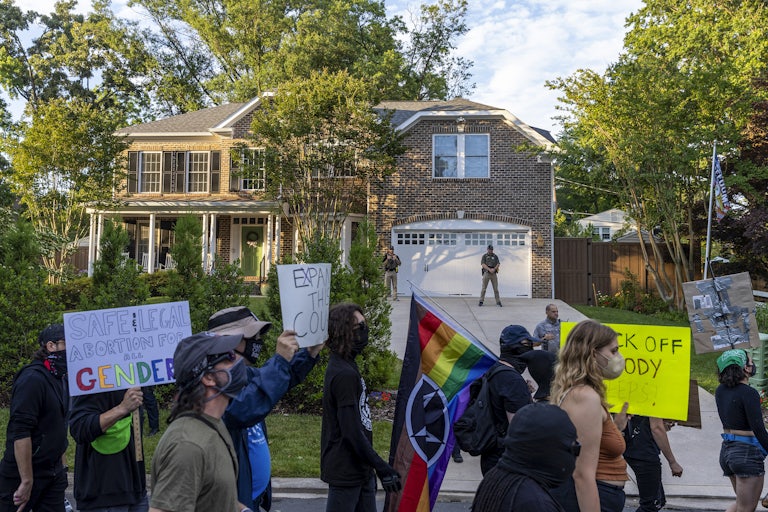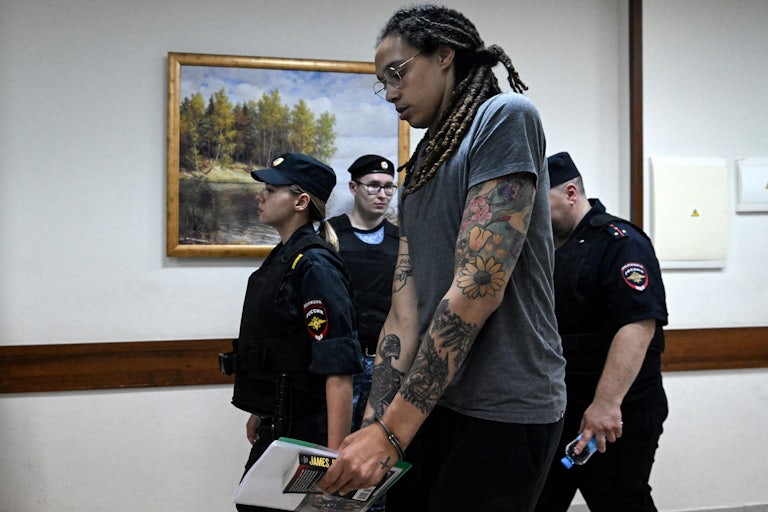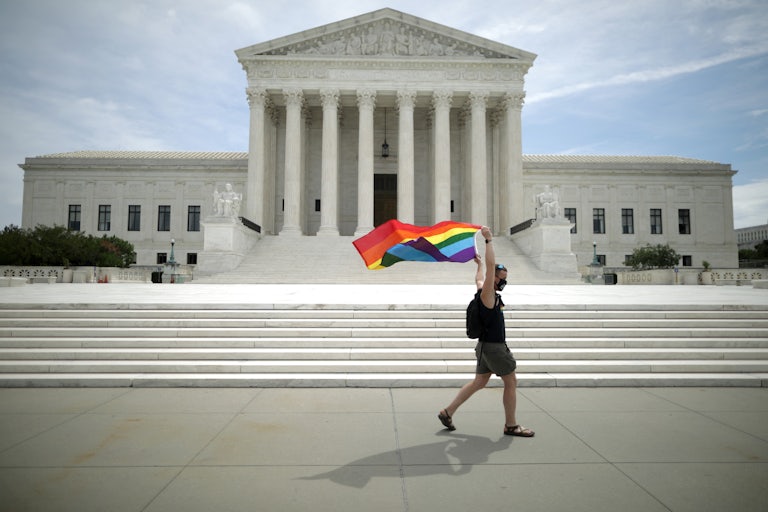The Latest NDAA Has Sparked an Unexpected Debate Over Judicial Security and the First Amendment
The just-passed defense spending bill includes provisions designed to protect judges from violence. But legal journalists say these measures infringe on their rights.

The House of Representatives passed the behemoth $858 billion annual defense bill on Thursday in a 350–80 vote. Among its many provisions is one aimed at improving security for federal judges, which became part of the final bill despite some criticism from judicial watchdog groups.
The provision, known as the Daniel Anderl Judicial Security and Privacy Act of 2022, would generally forbid the unauthorized disclosure of a judge’s personal information or that of an immediate family member. It would cover home addresses, phone numbers, license plate details, and information about next of kin’s workplaces, schools, and daycares, and similar data.
The bill is named after the son of Judge Esther Salas, whose New Jersey home was targeted in an apparent assassination attempt in 2020. The gunman killed Daniel and wounded Salas’s husband before fleeing the scene. Local police later identified the assailant as Roy Den Hollander, a lawyer against whom Salas had previously ruled on a procedural matter. He died by suicide before he could be apprehended. After her son’s death, Salas advocated for stronger security protections for federal judges. New Jersey’s two senators, Cory Booker and Bob Menendez, introduced the bill that eventually became part of the defense budget package this week.
Attacks on the federal judiciary are relatively rare in the United States but not unheard of. Three federal judges were assassinated in the twentieth century and a fourth, John Roll, was killed when a gunman attacked an event held by then–Arizona Representative Gabby Giffords in 2011. In 2005, Judge Joan Lefkow’s husband and mother were murdered in a targeted attack in suburban Chicago. The U.S. Marshals Service, which is charged with protecting judges and courthouses, has told Congress that the number of threats has increased in recent years.
The bill’s breadth nonetheless drew some criticism in recent days from judicial transparency advocates and from some journalists. The Free Law Project, a nonprofit group that tracks the federal courts, said the bill was “unconstitutional” and warned that it would lead to censorship against them. “If this bill becomes law, we’ll have to fight it in court or take down vital accountability information from our site,” the group wrote on Twitter on Wednesday night. “This is not OK.” Fix the Court, a Supreme Court–oriented watchdog group, also described it as “clearly unconstitutional.”
Much of the criticism centered on provisions that would allow immediate members of a judge’s family to take down information about their employers. “Lawmakers have just added a provision to the National Defense Authorization Act protecting Supreme Court spouses from having to reveal any outside employer, in the name of security,” Jane Mayer, a New Yorker staff writer who has written about the Supreme Court justices, claimed on Wednesday. “If it passes, Ginni Thomas’s professional entanglements would effectively be state secrets.” Thomas, who is married to Supreme Court Justice Clarence Thomas, has come under intense scrutiny over the last two years for her ties to groups that sought to overthrow the 2020 election.
If signed into law, the bill could face legal challenges from websites and publishers that decline to take down information about judges’ families. Those challenges would then have to survive the scrutiny of federal judges who have watched with concern as the number of threats against them grew in recent years. Any lawsuit would also likely face the ultimate test before the Supreme Court, most of whose members saw protests outside their homes after the court voted to overturn Roe v. Wade earlier this year. Persuading them to make it easier to disclose private information about their family members might be a tall order for any lawyer.









